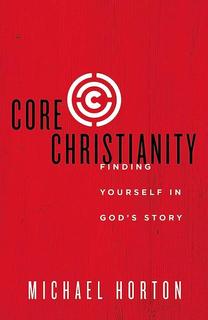The greatest challenge always facing the church is whether it will preach the gospel. Not whether the world will let us preach it—although religious liberty is always a question, and there’s a lot of hostility out there in post-Christian as well as Islamic societies—but whether we think the gospel is still the power of God unto salvation.
I’m not talking merely about what the liberals do to the gospel: essentially reinventing it as the affirmation of basically decent people. It happens in evangelical circles—including churches linked to the Reformation. We get bored.
And let’s face it, a lot of preaching and teaching today is boring and that’s a shame. But then we begin to take it for granted. It becomes an “of course”—the ABC’s of the faith that we needed to become Christians, but now we need to focus on life. As if the gospel got us started and now it’s all about us again (see Galatians 3:3). So we subordinate the gospel to supposedly more relevant and interesting agendas.
Or, in the name of “translation” and “mission” (or just by not thinking about it), we slowly assimilate the gospel to cultural habits of thought. It's the frog in the kettle. For example, in a highly therapeutic society, we say the words “sin” and “salvation,” but we mean (or people hear us saying) “dysfunction” and “recovery.”
It’s very hard in this culture to get people to take seriously the fact that a God outside of us is going to judge us one day and there is no hope unless we are dressed in the “wedding garment” of Christ’s righteousness.
People think religion is about inner empowerment for their own life projects. This is all law, not gospel; it’s not even God’s law, but what I call “Easy Listening Law.”
What they need is God’s law—his interpretation of the situation and of us—to tell us the truth. Many people today have a supporting role for God in their life movie, but they get mad if we tell them, “Well, actually, you die in this scene and God raises you up in Christ as a new character in his greatest story ever told.”
But those who are saved by it know how powerful it is to do that very thing to us: to insert us into Christ in whom we find our election, redemption, justification, adoption, sanctification, and glorification. Since the gospel creates the church, to whatever extent it is faithfully preached the kingdom of Christ expands and deepens. And people discover that this death of the “curved-in” self (to quote Augustine) really is their life.
The Real Hero of Our Story
Throughout Scripture, the Triune God is the real hero of the story. What does it mean to be swept into the new creation that dawned with Christ’s resurrection from the dead? Gospel means “good news” and in the ancient world, it referred to the announcement of victory on the battlefield that a runner would bring back to the capitol.
The gospel is that Jesus, God incarnate, was crucified, buried and rose again, appearing to Peter and the other disciples and then to a great number (1 Cor 15:1-5). “He was crucified for our sins and was raised for our justification” (Rom 4:25).
When I say “everything has to be oriented by the gospel,” I don’t mean repeating John 3:16 over and over. I mean tracing the great redemptive themes from Genesis to Revelation: Christ as the true temple, the Lamb of God, the high priest, prophet, and king; the greater son of Abraham and David.
So the gospel is everything in Scripture that is in the category of God’s promise, clustering around the coming Messiah. The law is everything in Scripture that reveals God’s righteous commands. The law reveals our sin and helplessness to attain God’s favor by our own merits. It also guides all who are in Christ by the Spirit.
Only in the gospel is it announced that the Father gave his Son for us. Show people that in episode after episode and they’ll find themselves being cast by the Spirit as characters themselves in that unfolding drama. Also show them the law, how God’s goodness, truth, and beauty is manifested in his righteousness, holiness, and justice You put that together with the gospel of God’s love and mercy in Jesus Christ and it’s really amazing.
But now that we’re freed from the law as a condition for righteousness before God, we can finally love and serve others out of gratitude for God’s grace and appreciation that he has placed this other sinner in my path to wash his or her feet today.
Paradoxically, it’s only when Christ fulfills the law, bears our curse for breaking it, and sends his Holy Spirit to renew us by that good news that we find ourselves liberated for the first time to actually love our neighbors from the right motives. They aren’t opportunities for us getting points with God. Since God doesn’t need our good works, where do they go? Out to our neighbor who needs them.






